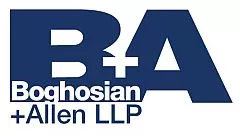- with readers working within the Retail & Leisure industries
Earlier this year, in the case Cadieux v. Cadieux (2024), 172 O.R. (3d) 385 (ONSC), the Superior Court of Justice examined the circumstances under which the non-settling defendant might be able to undo a Pierringer Agreement. Often, municipalities and other public authorities named in personal injury cases find themselves of the wrong end of a partial settlement, making this a case with which municipal defence counsel to be familiar.
While driving his children to a park, Mr. Cadieux drove through an intersection a full eight seconds after his traffic light turned red, and was struck by a Kenworth tractor trailer owned by United Petroleum. The driver of the tractor trailer was described on the police motor vehicle accident report as "driving normally"
It was quite clear that Patrick Cadieux was primarily liable for his sons' injuries and damages. However, Mr. Cadieux' automobile policy had liability limits of $2,000,000 additional Defendants with minor potential liability, but the ability to pay a significant judgment United Petroleum and the City of Oshawa were also named as Defendants. Due to the principles of joint and several liability, a finding of minimal liability on the part of the City or United could see one or both of them paying the lion's share of the Plaintiff's damages.
The City of Ottawa entered into a Pierringer Agreement with the Plaintiffs. Pursuant to this Pierringer Agreement, the City paid an unspecified sum to the Plaintiffs, in return for which the Plaintiffs agreed to amend the Statement of Claim to their claim several between the City and the other two defendants, to withdraw the claims against the City, and to continue their claim against Mr. Cadieux and United Petroleum for their respective degrees of fault, with them each remaining jointly and severally liable to one another and the Plaintiff. The agreement was made subject to court approval by way of motion.
United Petroleum opposed the motion to approve the Pierringer and amend the Statement of Claim on the basis that this would cause United Petroleum prejudice that could not be compensated for by costs or an adjournment, by exposing United to damages in excess of its several liability due to Mr. Cadieux's insufficient policy limits. In all likelihood, United's insurer was aware that it was unlikely to succeed in undoing the Pierringer, but felt it inappropriate not to oppose an arrangement that would result in United potentially being exposed to a judgment in excess of its liability limits.
The motion to approve the Pierringer Agreement, and United Petroleum's objection, was heard before Kaufman J. of the Superior Court of Justice. Kaufman J. was not persuaded by United's position and approved the Pierringer and the amendment of the Claim (subject to one condition) for three reasons.
Firstly, Kaufman was not persuaded that United would be prejudiced by the agreement. He noted that while in the event that United, the City and Mr. Cadieux were each found at fault, which would prejudice United by exposing it to a judgment in excess of its liability limits, this result was not a foregone conclusion. If, instead, United was not found at fault at all, then there would be no prejudice to it (but ironically there would be a lot of prejudice to Mr. Cadieux) as it would not be exposed to any damages. If the City was found not at fault, the Pierringer would make no difference to the outcome as far as United was found. Accordingly, Kaufman J concluded that as the potential prejudice to United was contingent on the outcome of the trial, there was not a sufficient risk of prejudice to justify undoing the Pierringer agreement.
Secondly, Kaufman J noted that as a matter of public policy, the courts should promote settlement, particularly in light of there being insufficient judicial resources in Ontario at the present time, and that approving this Pierringer was in keeping with this public policy goal.The Pierringer would place United in a position where faced risk of a judgment in excess of policy limits, which might make its insurer more receptive to settlement, its strong liability case notwithstanding. The author suspects that this was in Kaufman J.'s mind in citing this public policy rationale.
Thirdly, Kaufman J. noted M(J) v. B(W) (2004), 71 OR (3d) 171 (ONCA) in which the non-settling defendant found himself in a similar position to United. In dealing with the approval of the Pierringer in this case, an Order was requested that the liability of the settling Defendants at trial be allocated, so it could argue at trial that exposure to any shortfall in the Plaintiff's damages due to insufficient insurance of the co-defendants could be proportionally reduced. The Court of Appeal in M(J) v. B(W) was not convinced this remedy was available at law, but described this argument as "compelling". Kaufman J. felt that at the end of the trial, United could raise a similar "compelling" argument of its own if necessary, and might be successful.
Lastly, with respect to the actual amendment of the Statement of Claim, Kaufman J. ordered that the City should remain in the title of proceedings, and that the allegations against it should remain in the Amended Statement of Claim, as this would ultimately help the trial judge to properly apportion liability between the settling and non-settling defendants.
The takeaways from this case are as follows:
- Courts will be reluctant to not approve Pierringers, given the public policy rationale of promoting settlements, and the fact that they will often improve the chances of vulnerable Plaintiffs being properly compensated
- Had counsel for the City in this case not acted decisively in negotiating a partial settlement with the Plaintiff, the City might have found itself in the same unenviable position as United. In partial settlements, like many other things, timing is everything.
The content of this article is intended to provide a general guide to the subject matter. Specialist advice should be sought about your specific circumstances.


